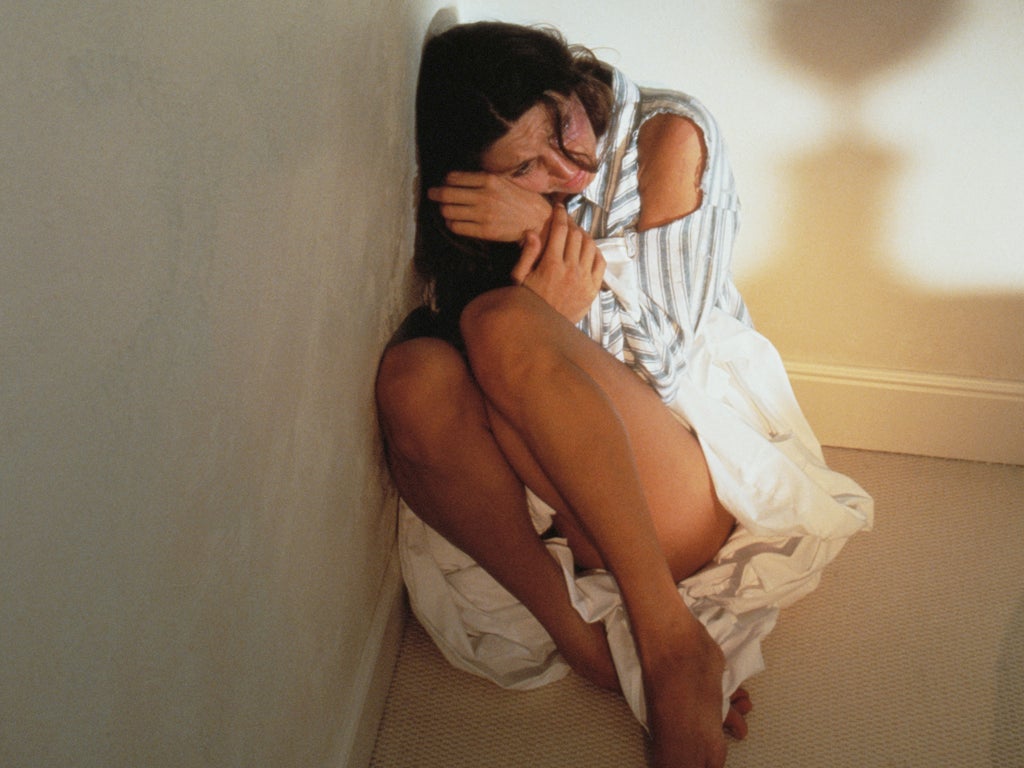Only one in 10 Britons confident they know how to help domestic abuse victim
Seven in 10 said they believe domestic abuse victims need more support

Just one in 10 people in the UK are confident they know how to help a domestic abuse victim, new research has found.
The study, carried out by the Early Intervention Foundation, found nearly two-thirds of Britons are unaware children who witness domestic abuse involving their parents or endure its repercussions are now acknowledged in law as also being victims.
Out of the 1,700 adults surveyed, around seven in 10 said they believe domestic abuse victims need more support. Women were found to be more likely to think this than men – 77 per cent of women compared to 65 per cent of men.
Dr Jo Casebourne, the Early Intervention Foundation’s chief executive, said: “It is well established that domestic abuse – whether coercive or physical or both – can have a devastating long-term impact on a child’s life chances and quality of life.”
She noted this can have consequences on a child’s education, mental health and relationships they go on to form as adults.
Dr Casebourne added: “We welcome the fact that through its new domestic abuse plan, the government has committed to increasing the amount of support available to victims of domestic abuse, including children, but it’s crucial this is done in a way that allows us to build knowledge about which types of support work best.”
She noted there is presently no consensus on the best ways for children’s services to intervene in domestic abuse cases - nor “what the appropriate outcomes of interventions are that can be measured”.
“It’s good to see that the government has committed to developing a framework for measuring the impact of domestic abuse interventions on the youngest victims,” Dr Casebourne said.
“This will be important as a way of improving learning about what works to support children suffering from the impacts of domestic abuse. In such a critical area, we cannot afford to be operating in the dark about what support works best and therefore should be prioritised.”
Around one in 10 of those surveyed believed domestic abuse victims are provided with enough support at the moment.
The landmark Domestic Abuse Act, which came into force last year after lengthy delays, acknowledged children as being victims of domestic abuse.
Tracy Blackwell, of Refuge, the UK's largest provider of shelters for domestic abuse victims, told The Independent: “Acknowledgement of the impact of domestic abuse on children is something domestic abuse organisations have long called for, but a year on from the Domestic Abuse Act, we are still yet to see any government funding specifically to support child victims and survivors of domestic abuse.
“It is essential that funding is provided to help us to develop specialist evidence-based responses to supporting children in our services.”
Between two and three women are murdered each week by their partners or ex-partners in England and Wales. One in four women will suffer domestic abuse at some point during their lives - with domestic abuse having a higher rate of repeat victimisation than any other crime.
Anyone who requires help or support can contact the National Domestic Abuse Helpline, which is open 24/7 365 days per year on 0808 2000 247 or via its website nationaldahelpline.org.uk
Join our commenting forum
Join thought-provoking conversations, follow other Independent readers and see their replies
Comments

Bookmark popover
Removed from bookmarks